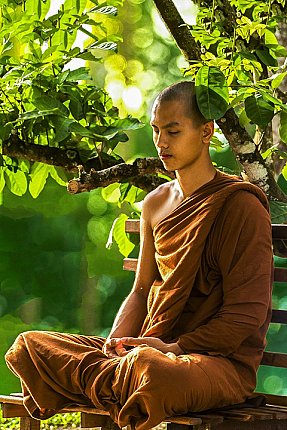The Bodhisara Dharma Community, nestled in the Amherst-Northampton area of western Massachusetts, stands as a beacon of inclusive and supportive spiritual practice since its inception in the fall of 1996. Founded with the vision of not just learning but embodying the teachings of the Buddha, this community has become a nurturing home for individuals seeking refuge in the profound wisdom of Buddhist philosophy. Led by Mark Hart, the community’s teachings draw from the Theravadin Buddhist tradition, offering insights into the nature of reality and the path to awakening.

What sets Bodhisara Dharma apart is its commitment to inclusivity and diversity. Open to practitioners of all backgrounds, including Buddhist, Jewish, and Christian traditions, the community embraces a non-sectarian spirit that transcends religious boundaries. This openness fosters a rich tapestry of multicultural and multi-faith dialogue, where individuals come together to explore Buddhist teachings in a spirit of curiosity and mutual respect.
Central to the community’s ethos are the core teachings of Buddhism, which Mr. Hart eloquently elucidates. From the foundational understanding of suffering and its cessation to the cultivation of generosity, gratitude, and kindness, Bodhisara Dharma offers a holistic approach to spiritual growth. Themes such as enjoyment as an integral part of practice and befriending all different aspects of oneself highlight the community’s nuanced understanding of Buddhist philosophy in the context of contemporary life.
Bodhisara Dharma’s incorporation of non-dual teachings, influenced by figures like Adyashanti, adds a dimension of depth to its practice. By embracing the non-dual nature of reality, practitioners are invited to transcend conventional dualistic categorizations and directly experience the interconnectedness of all things. This integration of diverse perspectives reflects the community’s commitment to embracing the complexity of the human experience and fostering a sense of unity amidst diversity. The community has adapted and changed to encompass the times and the practicing members, which caused a shift from the programs it offers, the mode and the community itself. The diversity of courses offered whether online or in person, and the age range that the community holds shows a deep resilience of the practitioners.
In the dialogue between Buddhist philosophy and multiculturalism, Bodhisara Dharma serves as a shining example of how diversity enriches spiritual practice. By welcoming individuals from various cultural and religious backgrounds, the community creates a space where differences are celebrated as opportunities for mutual learning and growth. This inclusive approach not only deepens our understanding of Buddhist principles but also strengthens our connections as members of a global community. Here, we can ponder the intersections of religions and cultures.
